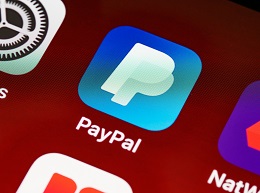story of facebook

Embark on a compelling journey through the inception, growth, and impact of Facebook—from a dorm room project to a global social media giant. Discover the vision, challenges, and key moments that defined the platform and reshaped the way we connect in the digital age.
Genesis: The Dorm Room Brainchild
In 2004, Harvard University witnessed the birth of a social media phenomenon that would change the landscape of digital communication forever. Mark Zuckerberg, along with his college roommates Andrew McCollum, Eduardo Saverin, Chris Hughes, and Dustin Moskovitz, launched "The Facebook" from their dorm room—a project born out of a desire to connect people and foster a sense of community within the university.
Founders' Bio: Architects of Social Connectivity
Mark Zuckerberg: The Visionary
As the face of Facebook, Mark Zuckerberg's vision transcended the boundaries of traditional social interaction. His coding skills and entrepreneurial spirit laid the foundation for a platform that would redefine how the world connects and communicates.
Andrew McCollum: Designing the Experience
Andrew McCollum, with a background in computer science and design, played a crucial role in shaping Facebook's user interface. His commitment to creating an intuitive and visually appealing platform contributed to its widespread adoption.
Eduardo Saverin: The Business Mind
Eduardo Saverin, the business-minded co-founder, brought strategic acumen to the team. His focus on monetization and partnerships played a pivotal role in Facebook's evolution into a sustainable business.
Challenges in the Early Days: Navigating New Terrain
Collegiate Controversies
Facebook faced early controversies within the academic community, with allegations of privacy concerns and disputes over the platform's origins. These challenges tested the resilience of the founders and their commitment to their vision.
Expansion Pains
As Facebook expanded beyond Harvard to other universities and eventually the general public, the platform grappled with scalability issues. The team had to adapt quickly to handle the exponential growth in users and data.
Legal Battles and Setbacks
Facebook encountered legal challenges, including a high-profile lawsuit from the Winklevoss twins, who claimed the idea was stolen. These legal battles added layers of complexity to the platform's early journey.
Investment and Evolution: Nurturing Growth
Early Investments
In 2004, entrepreneur Peter Thiel became one of Facebook's first significant investors, injecting much-needed capital to fuel expansion. This marked the beginning of a series of strategic investments that would shape the company's trajectory.
Rise of News Feed and Acquisitions
The introduction of the News Feed in 2006 transformed Facebook into a dynamic, real-time platform. Strategic acquisitions, such as Instagram in 2012 and WhatsApp in 2014, solidified Facebook's position as a comprehensive social media ecosystem.
IPO and Public Listing
In 2012, Facebook went public with one of the most anticipated initial public offerings (IPOs) in tech history. The move signaled a new phase for the company, with increased scrutiny, shareholder expectations, and a focus on long-term sustainability.
Turning Points: Impactful Milestones
Social and Political Influence
Facebook emerged as a powerful tool for social and political movements, playing a pivotal role in events like the Arab Spring. The platform's influence on public discourse and activism showcased its impact beyond personal connections.
Mobile Revolution
The shift to mobile usage marked a critical turning point for Facebook. The company successfully adapted to the mobile era, with a mobile-first approach that ensured its relevance in an evolving digital landscape.
Oculus Acquisition and Virtual Reality
In 2014, Facebook's acquisition of Oculus VR signaled the company's interest in virtual reality. This move foreshadowed Facebook's commitment to exploring innovative technologies beyond traditional social networking.
Legacy and Impact: Shaping Digital Connectivity
From a dorm room project to a global social media behemoth, Facebook's journey encapsulates the evolution of digital connectivity in the 21st century. Mark Zuckerberg's vision, combined with the collective efforts of the founding team, has left an indelible mark on how people connect, share, and communicate.
As we explore the Facebook saga, we witness not only the platform's technological evolution but also its societal impact. From controversies to triumphs, the story of Facebook reflects the complexity of navigating uncharted digital terrain and reshaping the way we connect in an interconnected world.






